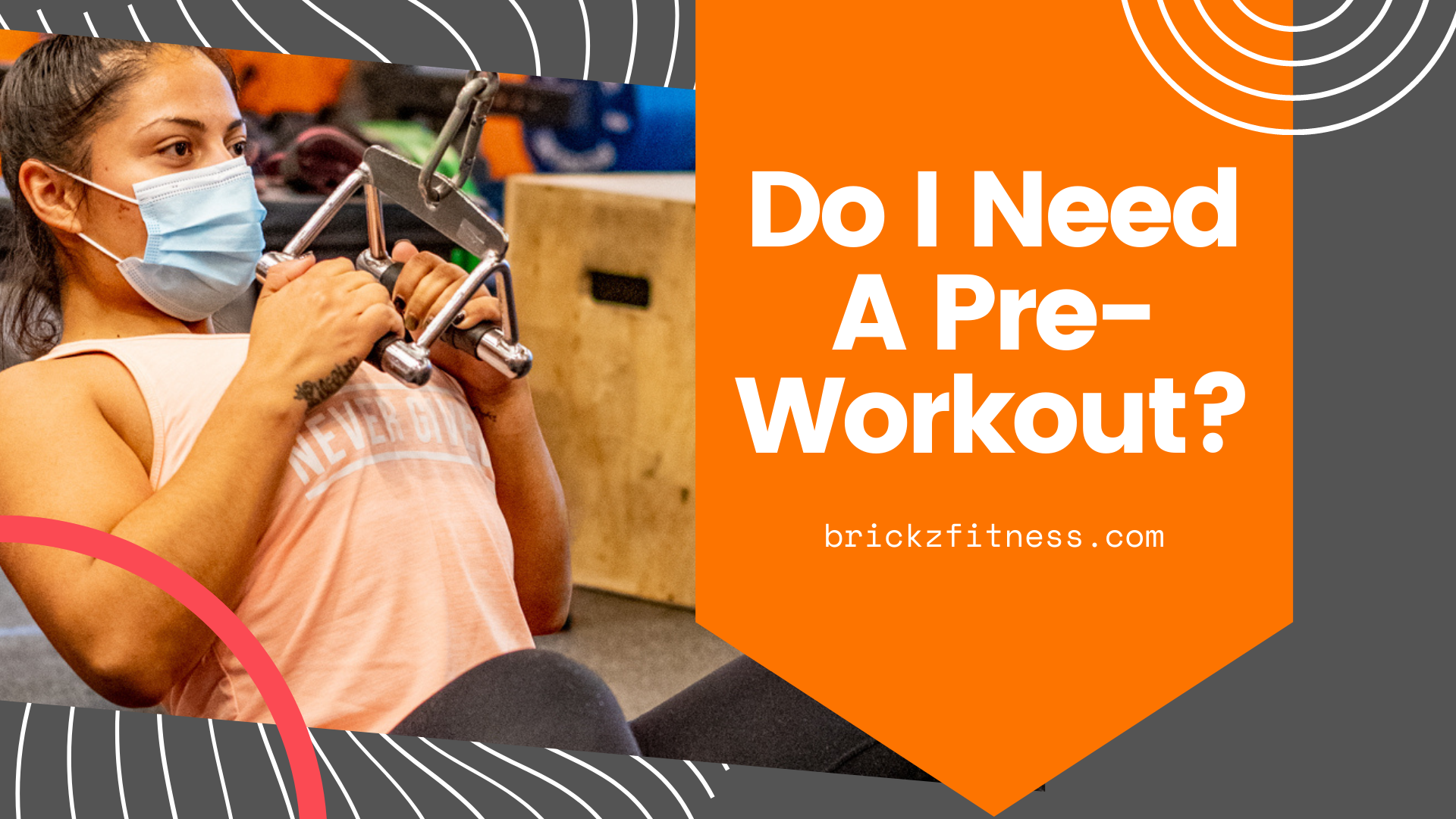
Pre-workout supplements have become something of a staple in the fitness world.
Some experts believe that pre-workouts provide the energy needed to power through a workout, including overcoming any plateaus you may be experiencing.
But do you
actually need a pre-workout?
As with most things in life, that’s subjective and really up to you, based on your situations and goals.
So let’s go over what a pre-workout is, its benefits, and potential risks, and hopefully that will help you decide if a pre-workout is right for you.
What Is A Pre-Workout?
To put it simply, a pre-workout is a multi-ingredient formula designed to help athletic performance, boost energy, and at times help with muscle recovery.
Often a pre-workout is a powder that you mix with water and consume thirty minutes or so before a workout. However, you can find them pre-mixed in cans as well.
What’s In A Pre-Workout?
Pre-workout formulas vary from product to product, but key ingredients are in almost all pre-workouts are,
- Amino acids
- B vitamins
- Caffeine
- Creatine
What Are The Benefits of A Pre-Workout?
As stated before, pre-workouts may help improve athletic performance thanks mostly to caffeine and creatine.
Caffeine has been used for years as an athletic stimulant to help improve performance and focus and has also been linked to supporting fat loss.
Creatine, another common pre-workout ingredient, is a natural chemical produced by the body. It is stored in skeletal muscle, which plays a vital role in energy production, development, and strength.
Supplementing with creatine from a pre-workout may increase the body’s stored amount of the compound, which can help improve recovery time, muscle mass, strength, and overall exercise performance.
What Are The Risks of A Pre-Workout?
As with any supplement, there are always potential risks.
With a pre-workout, the highest risk is taking in too much caffeine.
If you are a regular coffee or tea drinker, adding the excess amounts of caffeine from a pre-workout can lead to side effects such as headache, anxiety, impaired sleep patterns, increased blood pressure, and jitters. While some people can tolerate higher levels of caffeine, it is crucial not to overdo it, no matter your tolerance level.
Pre-workouts can also contain artificial sweeteners and sugar alcohols. While these add flavor to the pre-workout without excess calories, some people have a hard time digesting them. Some known side-effects of artificial sweeteners and sugar alcohols are intestinal distress, including gas, bloat, and in extreme cases, diarrhea, which no one wants to deal with during a workout.
It is essential to know that the side effects of artificial sweeteners and sugar alcohols have not been thoroughly scientifically proven. Therefore if you do get a pre-workout that contains them, start with a small dose to check your tolerance since the side effects appear to be based on a person-to-person basis.
Should You Take a Pre-Workout?
Whether or not you should take a pre-workout all comes down to you and your preference.
Pre-workouts are not for everybody, and that’s all right, it will not make or break your workout.
But if you are someone who deals with being tired and sluggish during workouts or feel you need an extra push, then a pre-workout might be just the thing for you.
For others, a cup of coffee and a piece of fruit can be just as effective and less expensive as a pre-workout.
Nevertheless, if you have a pre-workout you are taking and like, there’s no foreseeable reason to stop taking it.
Again, it all comes down to
you.
Figure out what is suitable for you by listening to your body, accessing your goals, and going from there.
